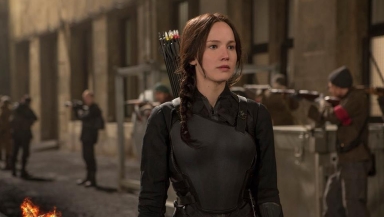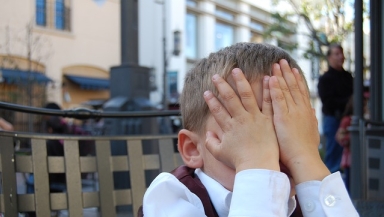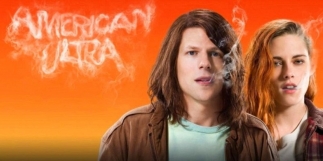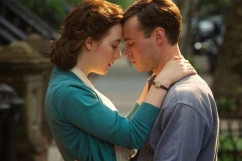
Hollywood has a finale problem. Or at least, Hollywood's accountants do. The producers of Harry Potter started it when they split the adaptation of JK Rowling's final novel into two parts; the makers of the last Twilight movie did the same. Now the studio behind the Hunger Games films has done the same with a two-stage ending, and it's hard not to wish they'd surrendered the certainty of doubling their profits for the chance to film a really great conclusion to the franchise.
Suzanne Collins' original Mockingjay novel, which isn't substantially longer than the first two, is pacy and action-packed. The first part of the adaptation, which arrived last year, was anything but, and the second is a great improvement. The action and adventure sequences are thrilling and inventive, particularly when the rather implausible central concept of teen soldiers in a heavily booby-trapped city gets going, but they're spaced out with long, moody scenes of talky angst. A really strict editor could probably turn the two chapters into one really great action movie, and that realisation does cast a drawn-out shadow across this final film.

Beyond that though, there's much to praise. The acting – particularly from Jennifer Lawrence in the heroic lead – is strong and captivating, and director Francis Lawrence really does deliver on the action. One high-tension sewer sequence arguably offers the most exciting moment in the entire series (although one which does call the film's 12A rating into some question; it's terrifying), and the film's final, justice-delivering moments are suitably epic. The script is unafraid to explore some fairly bleak and difficult subject matter with mature and edgy dialogue, and while it doesn't go where I and others had hoped and solve the book's infamous major story flaw, it does do a better job of justifying it.
The source material always ensured that the films would become progressively darker; death abounds, and protagonist Katniss has to deal with a series of physical and emotional shocks which we process with her in between action sequences. What no-one could have predicted however was how darkly prophetic the film would feel; released just six days after the terrorist attacks in Paris, Mockingjay part 2 includes both scenes of indiscriminate civillian bombing, and a community of 'nations' coming together in unity in their wake.
The theme of a world coming together to overthrow a ruthless ideology was always at the heart of The Hunger Games, but it has never felt so relevant. In keeping with what's come before however, the film isn't wholly optimistic about our ability to break the cycles of violence, revenge and death; in fact it has a pretty low view of human nature when exposed to power. While God is again entirely absent from the film – no-one prays to, or so much as blasphemes the name of a deity throughout – what's clear is the hypothesis that people will always struggle to govern a fair and just world on our own.
At the very beginning of the series we see that in Donald Sutherland's deliciously nasty President Snow, subduing the masses with his murderous televised bloodsports; as it reaches its end we're only given a flimsy hope that a world with someone different in his seat could ultimately be any different. We're all susceptible to the lure of power. We all know that absolute power corrupts absolutely.
That's perhaps Mockingjay Part 2's most relevant message, and it's one which illustrates the need for a higher morality. Katniss Everdeen delivers that in part, and as the series reaches its conclusion and she fulfils her messianic destiny, she does remain our one beacon of hope. However, for the fictional nation of Panem and for us, she remains the voice of a generation that seriously doubts whether its elders have the wisdom and moral backbone to govern responsibly and well. Humanity has a sickness, and it's not simply defeated through killing the current worst person on the planet; perhaps that another prophetic message for the real world to consider as it watches, at a time when revenge and further bloodshed might feel like an appropriate response to the evil we're currently facing.
Martin Saunders is a Contributing Editor for Christian Today and the Deputy CEO of Youthscape. You can follow him on Twitter: @martinsaunders

















